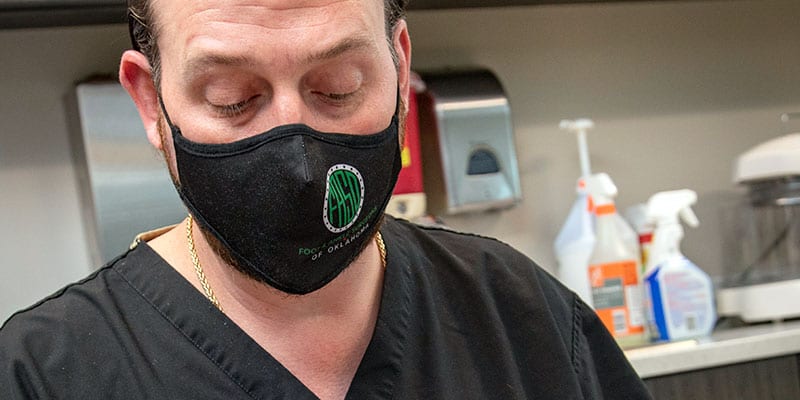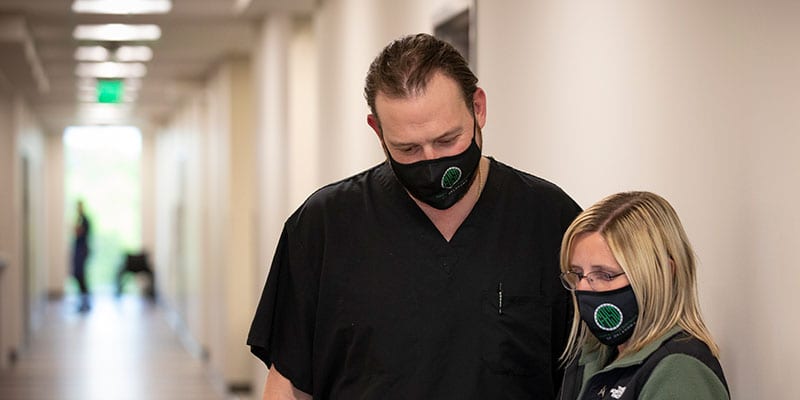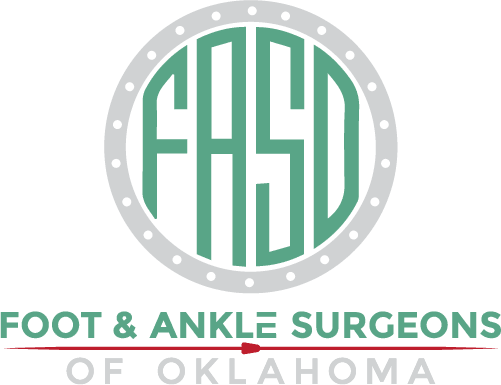
Wound Care
Foot and Ankle Surgeons of Oklahoma is highly skilled at treating wounds affecting the foot and ankle. Lower extremity wounds are often complex and at times challenging to heal. What may begin as a sore or non-healing wound can quickly lead to an ulcer. Ulcers are defined as open sores that occur in the skin when the outer layers of skin are injured and the deeper tissue becomes exposed. If you have a non-healing wound on your lower extremity, you must act quickly to receive treatment to prevent infection and further complications.
Causes
The elderly population and those with diabetes and arterial and venous circulation problems are often the most susceptible to foot and ankle wounds. Additional risk factors for developing these wounds on lower extremities include:
- Dietary or nutritional deficiencies
- Compromised immune system
- Uncontrolled diabetes
- Smoking
- Poor circulation
- Pressure
- Friction and/or shear forces on wounds
- Excessive moisture
- Lower extremity edema (swelling)
However, these wounds can also be caused by:
- Trauma
- Skin tears
- Radiation wounds
- Surgical wounds
- Diabetic neuropathic wounds
- Lower extremity ulcers
- Pressure or decubitus wounds


Symptoms
Lower extremity wounds may or may not be painful. The most common symptoms include:
- Odor
- Drainage
- Swollen leg
- Red, inflamed thickened tissue
- Burning or itching sensation
- Rash, redness, or brown discoloration
- Dry, scaly skin
Treatments
Foot and Ankle Surgeons of Oklahoma provides personalized, effective and advanced treatments to improve our patient’s ability to heal their lower extremity wounds. Our team of orthopedic surgeons, physical therapists and athletic trainers take the time to understand each patient’s needs, provide a thorough exam and identify the underlying cause of the wound. Diagnosis may include x-rays or advanced imaging studies to evaluate possible bone involvement or vascular disease.
Ulcers are typically treated by removing unhealthy tissue and performing local wound care to assist in the healing. Special shoes or padding may be used to remove excess pressure on the area. If infection is present, antibiotics will be necessary. In severe cases that involve extensive infection or are slow to heal, surgery or other advanced wound care treatments may be necessary.
To schedule an appointment, call us at 405-463-4140.
Give us a call or fill out the form to schedule your appointment.
Meet Our Staff
Our foot and ankle surgeons have extensive training in the diagnosis, treatment and prevention of foot and ankle disorders. Let us help you get moving again.

